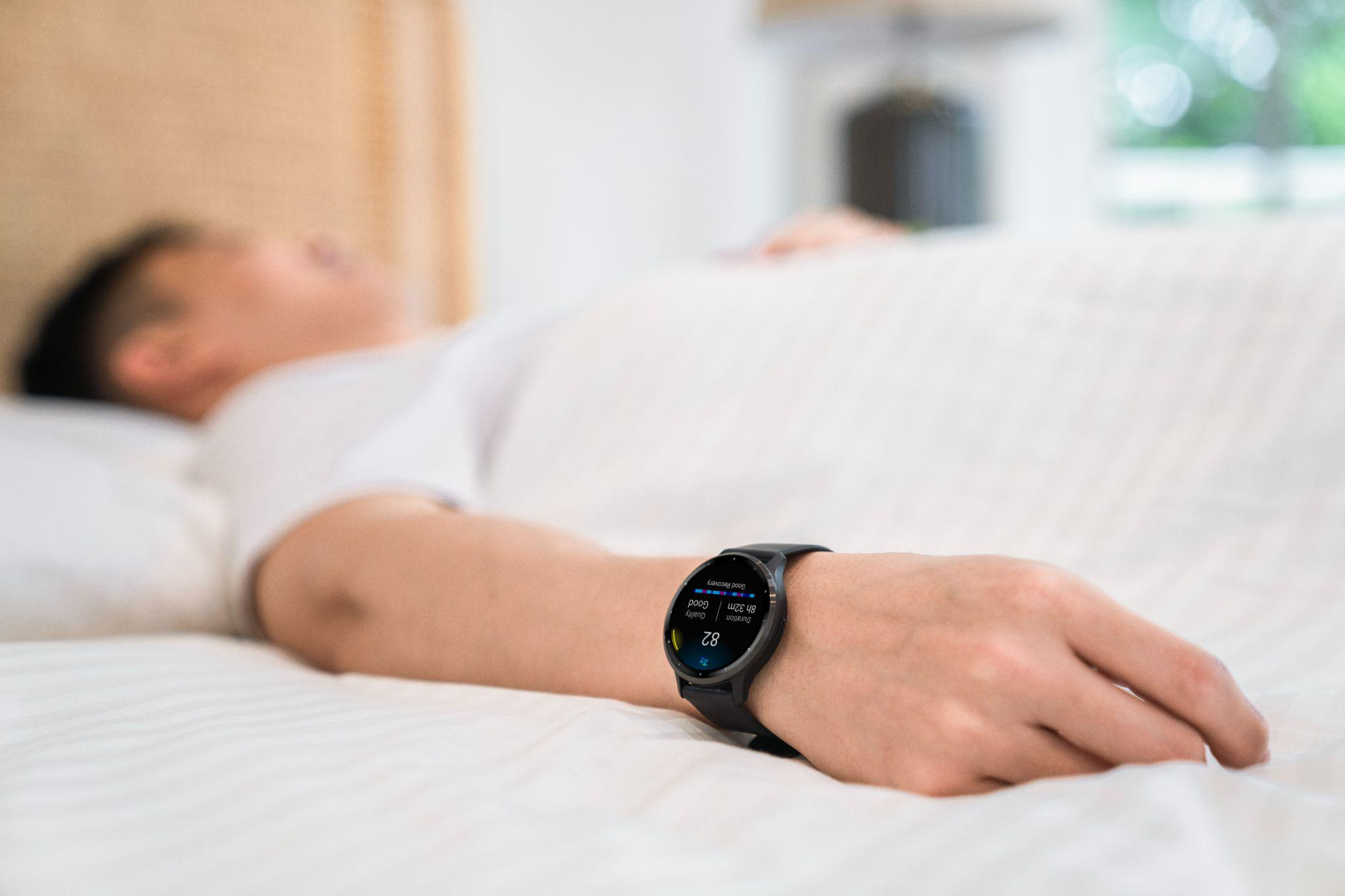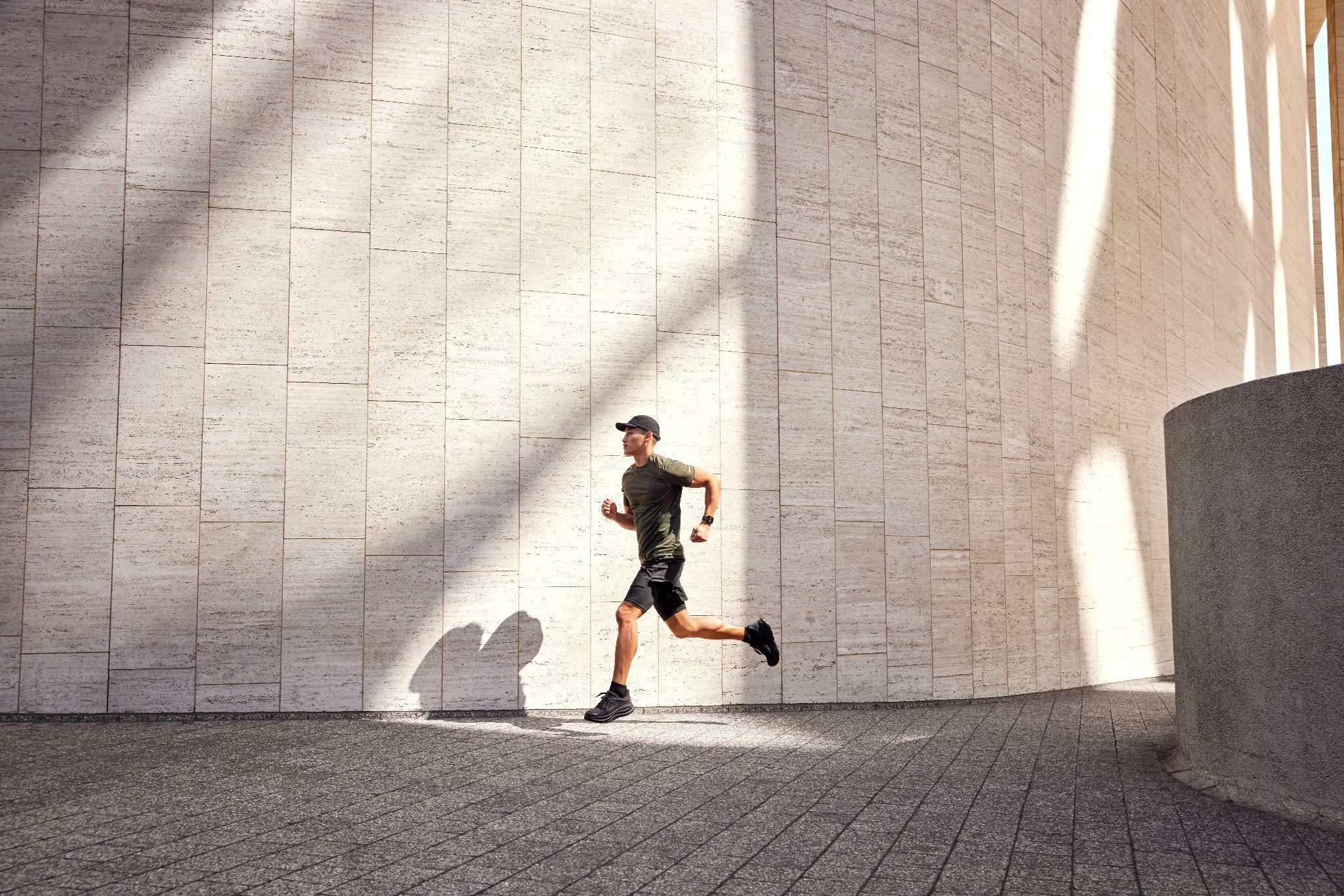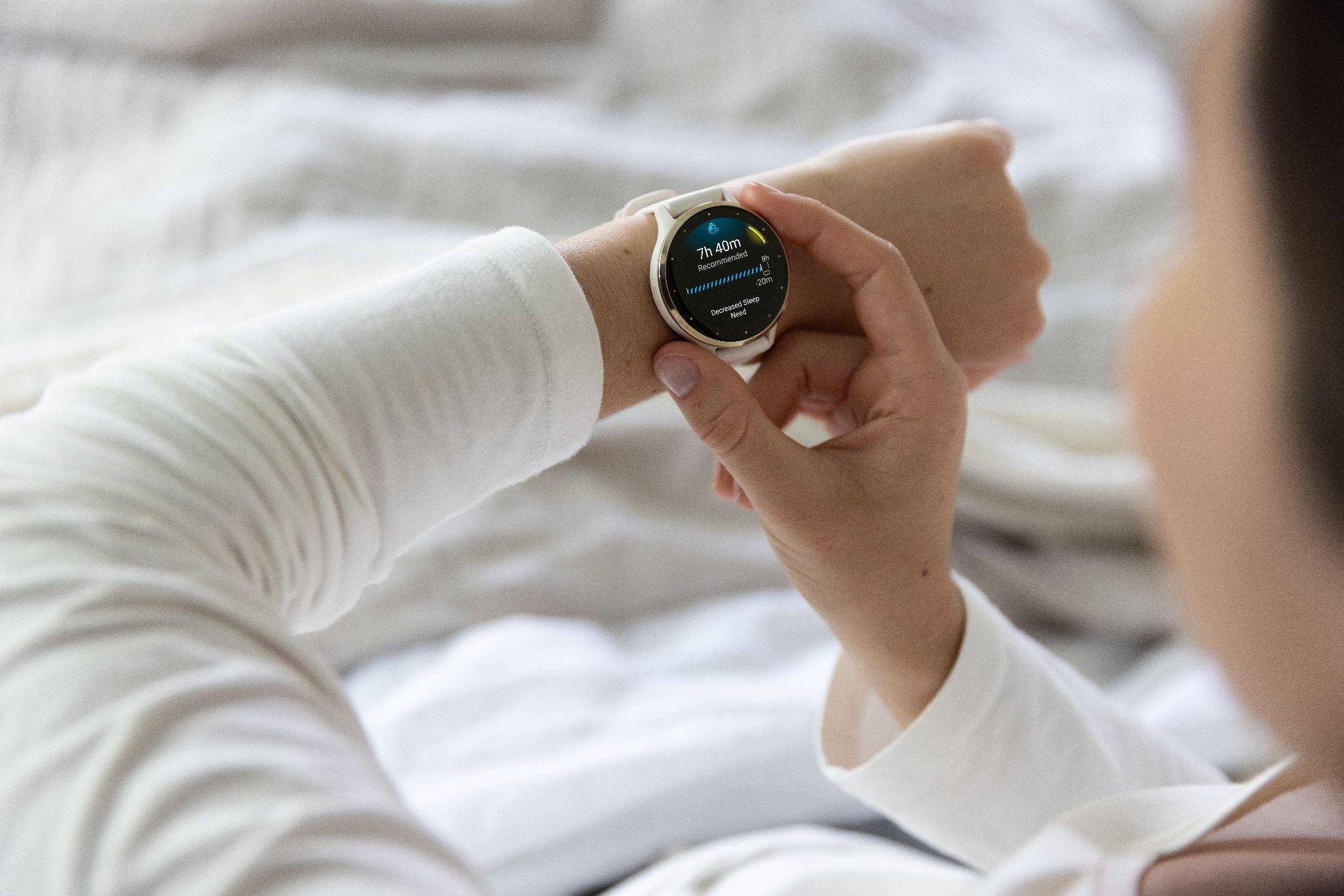Many runners believe that diligent training alone is enough to improve performance. However, science has proven that "sleep" is the foundation for physical and mental recovery. More and more runners are realizing that wearing a watch while sleeping is not only necessary but also helps them significantly improve their performance.
Understanding wearing a watch during sleep
Many people believe that bedtime is when the body needs absolute freedom and shouldn't wear any devices due to concerns about electromagnetic radiation or blue light.
In reality, modern smart wearables like Garmin watches use Bluetooth Low Energy, with minimal radiation levels – much lower than holding a cell phone. These devices do not emit blue light into the user's eyes but use optical sensors to measure heart rate, making them safe to use overnight.
 |
Runners wear watches to track body metrics while sleeping. Photo: *Garmin* |
According to a study from the US Centers for Disease Control and Prevention (CDC), more than 30% of adults don't get enough sleep or have poor sleep quality, increasing the risk of high blood pressure, cardiovascular disease, and reducing the body's ability to recover. Particularly for runners, a 2023 study from *Frontiers in Physiology* showed that runners with poor sleep quality are more prone to injuries and a 15-20% decrease in performance compared to those who sleep sufficiently and deeply.
According to veteran runners, sleep is not just rest but a vital factor in maintaining health and performance. Smartwatches capable of tracking body energy, sleep quality, and heart rate variability (HRV) help runners understand their condition and build optimal training plans.
Sleep - the key to recovery and energy regeneration
Sleep is when the body releases growth hormones, repairs microtears in muscle groups, and regulates the autonomic nervous system. If they sleep poorly, runners will feel muscle fatigue, irritability, and loss of motivation – a state of "mental exhaustion" common in those following long-term training plans.
Take the case of Nguyen The Lam, 33, in TP HCM. He was preparing for his first marathon with high determination, following a 16-week training plan, gradually increasing distance and speed. But by week 6, instead of improving, he felt prolonged fatigue, often forgot his training plan, and his legs felt heavy. The night before each long run, he tossed and turned restlessly.
When he wore his Garmin to sleep, the watch reported his body energy at only 29/100, and his 7 hours of sleep was still rated "poor". Training Readiness was also frequently low, warning that his body hadn't recovered sufficiently. "I thought I just needed to run regularly and eat on time. But it turned out the problem was that I was sleeping poorly and my mental state was declining without me realizing it," he said.
From then on, Lam began changing a seemingly small habit – wearing a watch to bed to proactively monitor sleep quality metrics, HRV, and recovery time, thereby adjusting his personalized training schedule daily to suit his actual condition and sleep. After 3 weeks, his Sleep Score increased from 60 to 85-90, his body recovered faster, and his performance improved significantly. "I sleep deeply, wake up early without feeling tired, and run much better," Lam said.
 |
Runners train better thanks to controlling body metrics. Photo: *Garmin* |
Similarly, Hoang Tra My (29, Hanoi), while preparing for a half marathon, often experienced late nights and a mind racing with deadlines. During the day, she tried to complete her running plan, but at night, she tossed and turned. When she started tracking on her Garmin watch, My noticed her HRV was consistently below the recommended threshold (below 40 ms), her average sleep score was only 65, and sometimes it warned her body wasn't recovering enough between workouts.
Since applying the Sleep Coach recommendations, the watch suggested she postpone workouts on high-stress days and improve her pre-sleep routine. After a month, her HRV increased to 55–60 ms, and she felt mentally stable and recovered faster. "I feel like I have a mental assistant, always quietly monitoring and reminding me at the right time. Since my health has improved, my training sessions have become much more effective and higher quality," she said.
Garmin not only measures sleep quality but also analyzes each stage (light, deep, REM), monitors resting heart rate, provides Training Readiness, and suggests daily workouts – creating a picture of physical condition and recovery ability.
 |
Runner tracking sleep metrics. Photo: *Garmin* |
The common point in both My and Lam's cases shows that quality sleep brings mental stability, better body recovery, and significantly improved training effectiveness. This is also why many top athletes like Pham Tien San and Nguyen Thi Kim Cuong choose Garmin to accompany them on their journey to conquer major milestones.
According to these runners, in long distances, mental stability is just as important as physical strength. And sleep is the "first exercise" to complete each day.
Hoai Phuong












